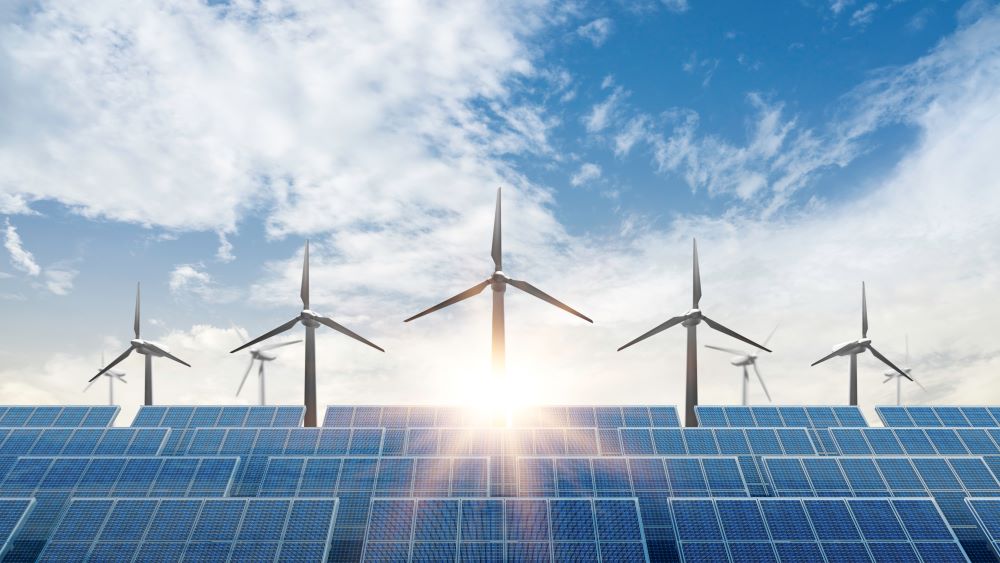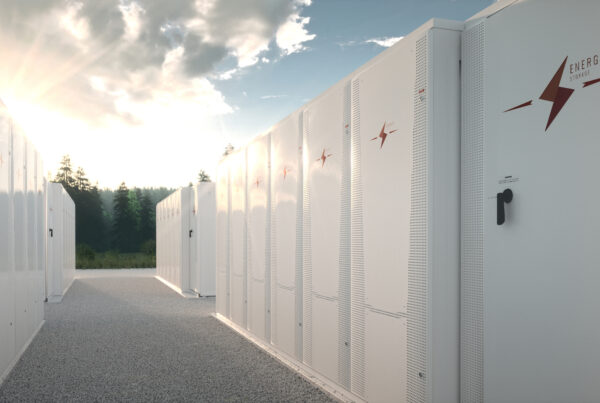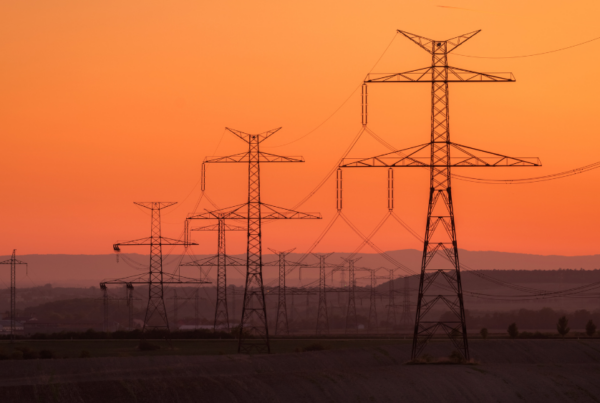
- Spain’s plans to rapidly expand renewable power generation capacity threaten to lead to frequent periods when generators cannot recoup their running costs, resulting in the waste—or “economic curtailment”—of over 5% of total renewable generation in 2025-2035, new analysis by Aurora Energy Research finds.
- Long-duration energy storage (LDES) offers a vital solution: deploying 15 GW would eliminate economic curtailment in Spain by 2035, accelerating progress to Net Zero and reducing power system costs, Aurora’s modelling shows.
- LDES could also play a pivotal role in decarbonising industry, with some thermal storage technologies delivering low enough heat costs to feasibly replace industrial gas boilers by 2025, Aurora calculates.
- Aurora’s analysis of long-duration energy storage in Spain, commissioned by Breakthrough Energy, is available in a free, public report—download it here.
Renewable power generation has been at the forefront of Spain’s efforts to reduce greenhouse gas emissions over the past two decades. Its trailblazing position is not set to change any time soon: the Spanish government has proposed some of the most ambitious targets for increasing renewable power generation capacity in Europe. Spain’s draft 2023 National Energy and Climate Plan (NECP) envisages that installed renewable capacity will rise by 173% between 2022 and 2030, allowing renewables to account for 81% of total electricity generation by 2030, up from 42% in 2022. While buildout on this scale would reduce emissions and contribute to lower wholesale electricity prices, it also threatens to create a serious problem for generators.
“Economic curtailment” occurs when generators choose to reduce their power output because their running costs exceed the wholesale electricity market price. As installed renewable power generation capacity increases and electricity prices fall, instances when generators cannot recoup their running costs will become more frequent, potentially deterring further investment in the sector. If Spain were to install an additional 85 GW of renewable generation capacity by 2030—slightly less than is envisaged under the NECP—5% of total renewable electricity generation between 2025 and 2035 would go to waste thanks to economic curtailment, Aurora Energy Research calculates. The volume of curtailed power—121 TWh—is equivalent to just under two years’ worth of household electricity consumption in Spain.
Spain can solve this problem using long-duration energy storage (LDES). Aurora defines LDES here as technologies that store energy for between 8 hours and four days, such as novel pumped hydropower, flow batteries, and compressed air storage. Deploying 15 GW of electrical energy storage, alongside ambitious renewables growth, would eliminate economic curtailment by 2035, Aurora’s modelling shows. Renewable energy that would otherwise have been curtailed during periods when running costs surpass market prices would instead be used to charge LDES assets. These assets would then supply that power back to the grid when it is needed to meet demand—such as during periods of low wind or solar output—taking advantage of LDES’ unique ability to address medium-term variations in electricity supply and demand that other technologies, such as lithium-ion batteries, cannot respond to.
Installing LDES would also accelerate emissions reduction—LDES assets can provide ancillary and grid services that are needed to ensure the operability of the electricity network, allowing earlier phaseouts of the gas-fired power stations currently providing these services. Spain reaches Net Zero in 2045 under Aurora’s scenario in which 15 GW of LDES are deployed, five years earlier than under a scenario in which Spain accelerates renewables installations but does not deploy LDES. Power sector emissions in 2030-2050 are 18% lower under the LDES scenario, compared to the scenario without LDES, while natural gas consumption in the power sector in 2030-2050 falls by 49%. Total power system costs—ultimately borne by consumers—in 2023-2060 fall by 1bn EUR.
Power is not the only sector that can benefit from LDES deployment. Thermal energy storage (TES) technologies, such as latent heat and sensible heat storage, can replace gas consumption in the industrial sector. Some TES asset configurations will deliver lower lifetime costs than industrial gas boilers by 2025, Aurora calculates, incentivising users to decarbonise. LDES can also deliver lower lifetime costs than other low-carbon alternatives—the lifetime cost of a hydrogen boiler is nearly double that of certain TES asset configurations, for example—and, critically, can provide heat at temperatures comparable with gas boilers (up to 1,500°C), which other low-carbon alternatives cannot. As deployment increases and costs fall, certain TES technologies will approach cost-competitiveness with industrial electric boilers by 2030, Aurora finds.
Ana Barillas, Head of Iberia and LATAM, Aurora Energy Research, comments:
“The ambitious renewable targets that MITECO has set out in its NECP draft are simply unfeasible without LDES and the increased electrification of industry. LDES can not only help avoid the curtailment of renewable generation, but also to provide key grid services that are needed when such a large portion of the generation mix is intermittent, as is the case in Spain. Further, thermal storage can make effective use of renewable energy to decarbonise industry at relatively low costs compared to other low-carbon providers of high-temperature heat. The case for LDES is clear: Spain now needs a comprehensive policy and regulatory framework that enables its deployment.”
Alejandro Zerain, Advisory Project Leader, Iberia, Aurora Energy Research, comments:
“Electricity is often at the centre of the debate on how best to decarbonise the energy sector, but half of global final energy consumption comes from heat. Half of that heat comes from high-temperature industrial processes, running 24/7 and therefore typically dependent on burning natural gas. Thermal energy storage can be a game-changer, by allowing cheap electricity from solar and wind to power industrial process heat instead of burning fossil fuels.”
Inês Gaspar, Advisory Associate, Iberia, Aurora Energy Research, comments:
“We expect the costs of deploying LDES to fall over time—we have seen it with solar, we have seen it with lithium-ion batteries, we will see it with these technologies—but the rate of decline will depend on the speed of deployment. LDES can help to keep the lights on in a decarbonised world, but to accelerate the inevitable cost decreases, we have to act now to ensure that prospective developers have the necessary policy support and opportunities to monetise the value that these assets bring to the national power system in the long term.”
Alberto Toril, Power Sector Manager, Europe, Breakthrough Energy, comments:
“It is crystal clear that rapid electrification is critical in our battle against the climate crisis. We have made great strides in electricity generation, witnessing unprecedented levels of clean energy production. However, as the share of renewable energy grows, we must tackle new challenges to ensure clean energy security. LDES technologies can play a pivotal role in enhancing the efficiency of the Spanish energy system. Aurora Energy Research’s report clearly shows that the deployment of LDES reduces the curtailment of renewables in Spain, lowers emissions, facilitates the early phase-out of fossil fuel power generation and serves as a catalyst for the decarbonisation of industrial heat processes. LDES proves to be a perfect complement to Spain’s renewable energy goals and positions the country as a preeminent clean energy hub in the years to come.”
– ENDS –
MEDIA CONTACT
Megan Tracey, European Press Officer
megan.tracey@auroraER.com | +44 (0)7810 817354
ABOUT AURORA
From its Oxford academic roots, Aurora Energy Research has grown to become the largest dedicated power market analytics company in Europe, providing data-driven intelligence for strategic decisions in the global energy transformation. We are a diverse team of more than 450 experts with vast energy, financial, and consulting backgrounds, covering power, hydrogen, carbon, and fossil commodities. We are active in Europe, Australia, and the US, working with world-leading organisations to provide comprehensive market intelligence, bespoke analytic and advisory services, and cutting-edge software.






